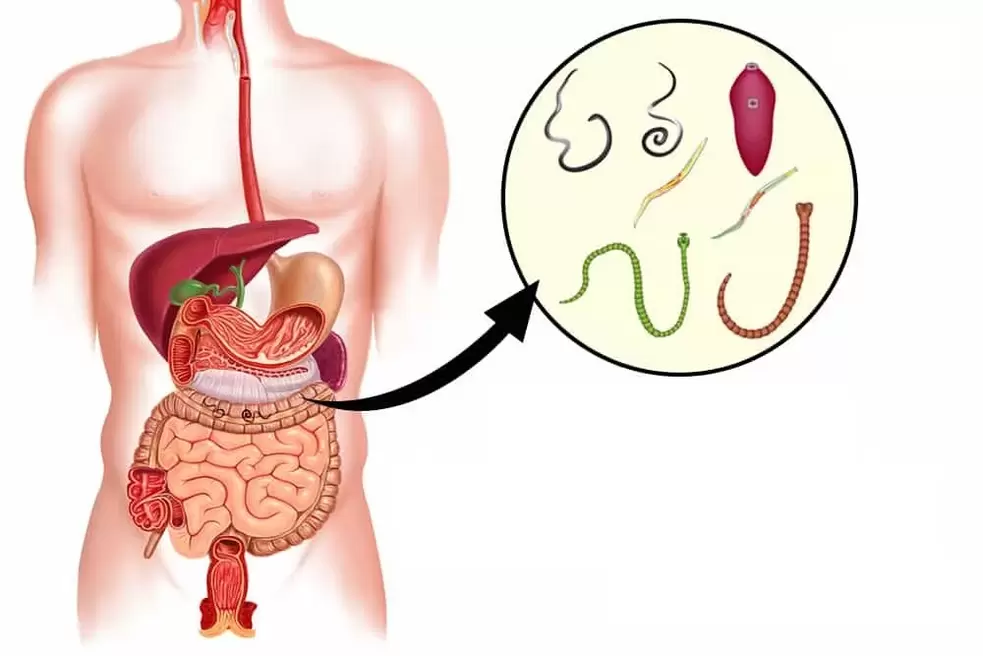Worms are parasitic worms found in the human body or in the body of an animal. They have a negative effect on the entire body completely, or on a particular organ, having a devastating effect on health.
Causes
The disease manifests itself in different ways. This is influenced by what species the worms belong to, where in the body their location and what is their number. Helminthiasis is often characterized by weight loss, physical weakness, dizziness, and excessive irritability. If the worms are located in the intestines, then this is accompanied by constipation, diarrhea, a feeling of nausea with possible vomiting.
When parasitizing in the liver - an icteric skin tone and edema; if in the lungs, the appearance of cough and nasal discharge. With any type of disease, activity and performance are reduced. As for children, there may be disruptions in both the mental and physical development of the child, stunting, puberty and memory problems. This disease is provoked when helminth eggs enter the human body. We can get them through dirty fruits and vegetables, half-cooked meat and fish, and the most common is unwashed hands.

Symptoms
Infection of a person with worms, depending on their type, can occur when eating poorly cooked animal meat infected with eggs and larvae, or when eggs and larvae enter the human body, the development of which occurs in the soil. Here they develop into adults.
The number of worms in the human body with an advanced disease can be very large. Adult worms and their eggs can be excreted from the human body along with feces, which is the main symptom in recognizing the causes of the disease. In addition, there are more complex diagnostic methods based on blood tests, sputum, etc. , which are performed in hospitals. When infected with worms, it can be:
- general malaise and weakness;
- rapid fatigue, increased or decreased appetite;
- nausea, vomiting, sharp abdominal pain, rapid weight loss;
- diarrhea with the release of worms in the feces;
- itching sensation in the anal area;
- sleep disorders.
Diagnostics
To establish how to treat worms, the pediatrician prescribes:
- general analysis of feces;
- general blood analysis;
- X-ray examination of the intestine;
- scraping the skin from the perianal area.
The following worms are most often found in humans: pinworms, roundworms related to roundworms, various types of tapeworms (tapeworms) related to tapeworms (tapeworms). The main sources of infection are dirty hands, unwashed fruits and vegetables, untested foods, contaminated water, and flies.
Treatment
The treatment needed for worms includes:
- antiparasitic drugs;
- sorbents;
- enzymes;
- immunomodulators;
- hepatoprotectors.
If you do not determine in a timely manner how to get rid of worms, there is a risk of complications:
- jaundice;
- intestinal obstruction;
- pancreatitis;
- purulent skin lesions;
- anemia.
Prevention
To prevent infection and spread of ascaris, you should follow the rules of personal hygiene, thoroughly wash your hands, vegetables and fruits, and keep the toilets clean. In order not to face the problem of how to remove worms in the future, it is recommended:
- observe the rules of personal hygiene;
- wash products thoroughly before use;
- carry out the necessary heat treatment of meat, fish, seafood before eating them;
- supervise children during games (so as not to take objects from the floor in their mouths).






































